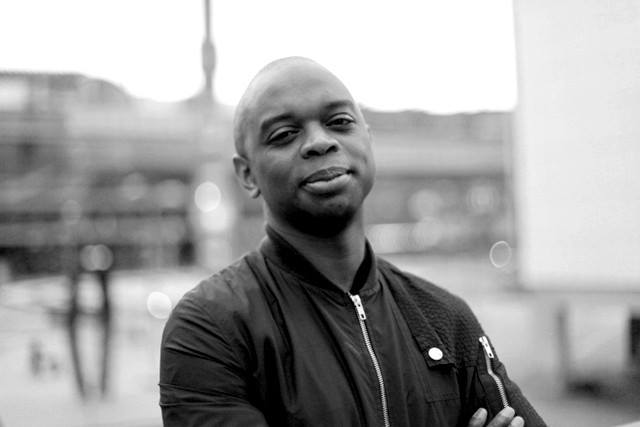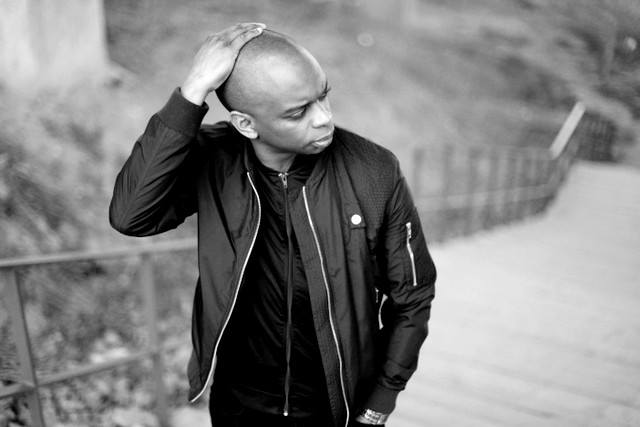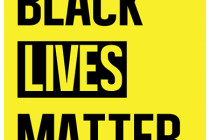Millions of Africans survived the Middle Passage (a stage of the triangular trade, that was part of the Atlantic Slave Trade), and arrived in the New World. Harvard Professor Henry Louis Gates Jr., author of “Black In Latin America” reports that, of the 11.2 million that made it to the New World only a mere 450,000 went to the United States. The rest went south of the North American border. A popular misconception is that “Latino” is a “race”. However, “Latino”, is an ethno-cultural group of people from Central and South America and the Caribbean who share a common language, Spanish (and Portuguese). Latinos are therefore of different ethnic backgrounds or mixtures thereof. The main ethnic groups are; Amerindian -The indigenous population of Latin America, European, African (predominantly of Sub-Saharan ancestry), Asians or other indigenous groups. Despite the vast number of people with African ancestry, both white and black people perpetuate the universality of racism in the “Latin” culture. Racism is generally minimized or excused at best and ignored at worst.
Historically, Latin America has been notoriously known for engaging in erasure, denial and attempts of whitewashing both institutionally and on a personal level, with phrases such as “Mejorar la rasa” (improve the race). There is however, opposition with movements such as the Black Awareness Day in Brazil held annually on November 20th, which celebrates the African Heritage of the population.
Krull got in touch with Christian Hofverberg for an interview on his experiences and thoughts on the perceptions of Afro-Latinos in the Afro-Swedish community. The discussion revolved around how one relates to their Afro-Latino heritage in a European country and how that heritage is meshed in to the Afro-Swedish context.
Krull: Do you identify as Afro-Swedish and why?
C.H: Yes, I identify as an Afro-Swede because of several reasons:
First, it’s the most relevant identity for black Swedes to organize ourselves around and to use as a tool in our work for more equality. But it is also very natural to me since I’m adopted and black, so the term really sums up my cultural and racial heritage as well as my cultural upbringing here in Sweden.
But on an individual level I usually say that I’m a black man. Because no matter where I am in the world, that identity will affect me the most and also affect others the most.
Krull: Where were you born and raised? What is your heritage/ancestry?
C.H: I was born in Cali, Colombia to my Afro-Colombian mother Alicia Caicedo. I was adopted by my Swedish parents when I was four months old and grew up in Täby, which is a middleclass/upper-class suburb in the northern parts of Stockholm county.
So my heritage is Afro-Latino but in some ways African as well (because in the southwestern parts of Colombia, where my Colombian mother is from, some of the African influences still are present in the Afro-Colombian culture).
But culturally I am, in many ways, very Swedish (if one by saying that would consider Swedish culture as traditional Swedish culture)
Krull: Is that cultural heritage actively present in your day-to-day life (music, food etc.)?
C.H: The Afro-Latino culture is not present directly but maybe indirectly in some ways since my wife is from Angola, and since Angola was colonized by the Portuguese and Colombia by the Spanish there are some similarities between Afro-Colombian culture and Angolan culture (mainly when it comes to food and music). But African-American culture is present in my everyday life through music and popular culture.
Krull: What has been your experience(s) being of Afro-Latin ancestry in the Afro-Swedish community?
C.H: I don’t really know if I have any proper experience as an Afro-Latino in the Afro-Swedish community. Maybe on a shallow level, with jokes from other Afro-Swedes about Pablo Escobar or memories of the former Colombian goalkeeper René Higuita.
Usually, other Afro-Swedes can’t see from my physical appearance that I’m from Colombia. When asked to guess where I come from they usually guess on various African countries or Caribbean countries. When I say that I come from a South American country 99 percent says Brazil.
But I often explain that I’m adopted so the most common reaction from other Afro-Swedes (especially those that are unfamiliar with the term Afro-Swede) is that I am just a Swede.
Krull: What, in your opinion/experience, are the general perceptions regarding the “inclusion” of Afro-Latin people in the Afro-Swedish community?
C.H: The general perception, or should I say, the general view that Afro-Latinos have of themselves in this matter is that they don’t see themselves as Africans, and therefore not as Afro-Swedes as well.
There are several aspects in this question. One is that the majority of the Latino population in Sweden is made up by non-black Latinos. So there isn’t a great number of Afro-Latinos in Sweden, if one doesn’t count the numerous adopted Afro-Latinos. Another aspect is of course that the term Afro-Swede still isn’t a broad term in the general Afro-Swedish population.
So the question of inclusion has many levels and must be broken down from several different points of view.
Krull: There are some, who use the term African-Swedish as opposed to Afro-Swedish. Does this term neglect a large part of the diaspora? Do you feel it is an accurate description of your heritage?
C.H: It is from a historical view of course a correct term. The Afro-Latino population in South America, is of course descendants of the Africans that were taken as slaves to the continent. But in a Swedish context, the term African-Swedish runs the risk of excluding people of Afro-Latino descent or any Afro-Swede that doesn’t have a direct connection to an African country. And that, can from a communication and recruitment perspective be counterproductive, if one sees strength in numbers and also strength in different kinds of experiences.
However, I realize that the term African-Swedish is relevant depending on the context through which the discussion about black Swedish lives is being held. So I don’t mind the word per say, but I do think that the term Afro-Swedish has a greater potential to attract more black Swedes to the movement for black people in Sweden.
But anyway, the discussions and debates about these two terms are just a natural development, similar to the development that took place in the US several decades ago.
Krull: What is your biggest challenge (if any) as an Afro-Latin person in the Swedish context? Do you find you that you have to “explain” describe your blackness in the Afro-Swedish community?
C.H: As previously stated, I usually don’t have to explain my blackness from the basis of being Afro-Latino, but from the basis of being adopted.
Krull: Do you feel there is some sort of a latent separation (with regards to preceived level of authentic “blackness”) between the Afro-Swedish population with a “closer” generational distance to the African continent and those whose are more generations removed?
C.H: There is, quite naturally, a difference between the generations of the Afro-Swedish community. But also differences depending on which African country that one has their roots in.
I think it’s a challenge to get the older generations of Afro-Swedes, which immigrated to Sweden as adults, to view themselves as Afro-Swedes but more importantly to see the benefits of that type of political identity. But I also think it’s going to be a challenge to get the younger generations of Afro-Swedes, who are now forming their own views and thoughts about Pan-Africanism, to use the energy and motivation that they get from this in ways that are relevant for domestic political issues concerning black Swedish peoples’ lives on a structural level.
Krull: Do you have access to other Afro-Latin people? In other words do you have people around with whom you share the contextual (of Afro-Latin ancestry living in Sweden) connection?
C.H: No, not in a great number if I exclude other adoptees from that context. I do however, have family and friends from Angola in my inner circle, and also friends and acquaintances from Guinea Bissau and Mozambique in my network, as well as people from Colombia and Brazil but not on a daily basis.
Krull: In your experience do you feel there is “diasporic” representation of the Afro-Latin community in a Swedish/Scandinavian context?
C.H: No, not really. Just on a very small level, with some artists and performers in culture and art but not on a big scale and certainly not present regularly in media or in everyday life.
Krull: Clarify or talk about the double edged sword that is the struggle to have one’s blackness legitimized in the black community due to the separation from the African continent -Latin first degree, Swedish adoptee (for those who it applies to) 2nd degree and so on. And on the other hand having to remind and highlight ones “Swedishness”. As an Afro-Swede you sort of wear your difference. Is there a constant (subconscious) measuring of one’s blackness/Swedishness to fit into various socially constructed molds?
C.H: I breifly touched on it in previous responses. However, to expound I would say that with the rise of a younger Afro-Swedish movement in recent years, made up largely by the second- or third generation Afro-Swedes, I think that the “struggle” is more about ones “African-ness” than blackness.
However, for me as an adoptee I am of course an expert when it comes to experience of using my Swedishness (and the cultural capital that comes with it) to not just fit in, but to counter-attack racism.
My strategy, since many years back, is to establish my blackness early when getting into new white environments. My experience has been that this can work as sort of a warning to the white people within this environment, that if they do or say something racist they know that I will react and that I will in one way or another punish them for this.
Krull: How is the separation (if any) present in the language? Does the Afro-Swedish community perpetuate any stereotypes that diminish the value of your multicultural ethnicity?
C.H: No, not for me on an individual level. Since I don’t really speak Spanish (although I understand a bit of Portuguese). But from an observer’s point of view, my experience is that Afro-Swedes that come from Portuguese or Spanish speaking countries are perceived as a bit snobbish or “un-African” by other Afro-Swedes and that Afro-Swedes who are from Spanish or Portuguese speaking countries can see themselves as more western or civilized. So one could argue that the “diminishing” goes both ways.
Krull: What are your thoughts on Afro-Latinas who deny their African roots?
C.H: Well, on a basic level they are denying historical facts but they are also denying the struggle that our ancestors went through so that we today could be free (on a judicial level at least).
However, I also see it as clear indicator of how elaborate the Spanish and Portuguese colonizers were in their quest to not only eradicate Africans of their lives and freedom but to really terminate the cultures, languages and practices of the various African tribes and families that the African women, men and children stemmed from. A true evidence of a how the genocide of Africans still impacts our lives today.
Krull: Did being of Afro-Latin heritage in any way influence finding the process of “embracing” yourself (standard of beauty, finding a partner, amount of effort to “fit in” etc.)?
C.H: Being black did but maybe not so much being Afro-Latino. But indirectly, being Afro-Colombian (and especially being an Afro-Colombian with family in Cali, Buenaventura and in the rural areas of southwest Colombia, areas that have a large Afro-Colombian population) did. Reuniting with my Colombian family in 1999, as a 20-year old, of course strengthened my identity as a black man, as a black person.
Krull: What other aspects can you think of that Afro-Swedes of South American heritage, are faced with that perhaps have not been addressed in this conversation?
C.H: I think the most common aspect is that the Afro-Latino presence in Sweden is sort of hidden; not talked about and not really highlighted in any way. The Latino experience, from the perspective of Afro-Swedes as well as white Swedes, is mainly a Chilean one (and in certain aspects, in sports for example) a Brazilian one (but still not “viewed” as Afro-Latino).
I think that the main reasons for this could be found in my prior responses in the interview, but also from gaining an understanding how dominant African-American culture is in popular culture. This combined with Swedish people’s great interest in speaking English gives other types of black experiences an almost impossible challenge to reach a wider audience in Sweden.







